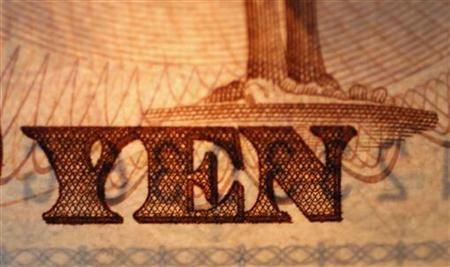Japan?s Economy Grows 1% In Q1 On Reconstruction Activities

Japan’s economy grew in the first three months of the year from the preceding quarter on reconstruction in tsunami-damaged areas, but the increase in the nation's gross domestic product is seen as short-lived.
Japan’s gross domestic product (GDP) rose 1 percent in the first quarter as compared to last quarter of the previous year, according to data released by the government on Thursday. However, exports are weighed down on account of the falling global demand and the rising strength of yen. With Greece on the verge of exiting euro zone, the debt crisis in Europe has revived, severely affecting Japan’s market sentiments, as a consequence.
“The upshot is that Q1 is likely to mark the high point for 2012. Growth should slow sharply in Q2 and we wouldn't rule out a renewed contraction in one or more of the remaining quarters of the year,” Julian Jessop of Capital Economics said.
This report comes when last month the Bank of Japan further eased the monetary policy so that the economy could recover from deflation and grow more strongly. The central bank raised the asset purchase programme to 40 trillion yen ($494 billion) from 30 trillion yen. This easing, which is the second this year, was seen as a response to political pressure to fight deflation. The first easing in February certainly helped in weakening the yen and lifting confidence in equity markets.
The economy should continue to expand over the rest of the year as reconstruction-related expenditure drives the GDP. The International Monetary Fund has already upgraded its forecast on Japan to 2 percent from its earlier 1.7 percent projection.
It was reported last month that loan demand from firms and households jumped in the first quarter, adding to the evidence that the Japanese economy is on the path of recovery.
However, aside from the boost from reconstruction spending, which largely reflects the replacement of lost assets, economic fundamentals are relatively weak, although they are on an improving trend. According to the Tankan survey, business sentiment is lackluster and firms are downbeat about the prospects for an improvement before the second half of the year.
Meanwhile, consumer sentiment is gradually improving but remains fragile. Supported by government subsidies on purchases of fuel efficient cars, spending on automobiles has increased to its highest level in a decade. The subsidy should provide some support to domestic auto production and this should provide a small boost to the GDP until the subsidy continues. However, the spending is likely to fall back sharply when the subsidy expires.
© Copyright IBTimes 2025. All rights reserved.





















